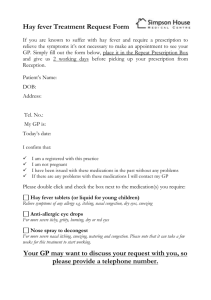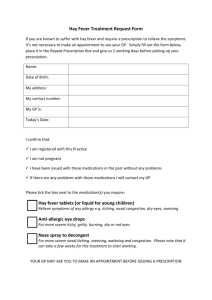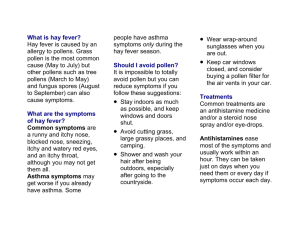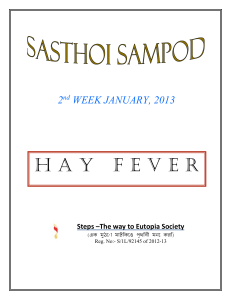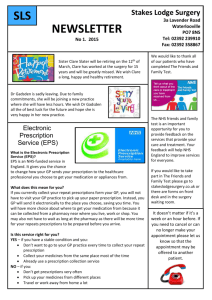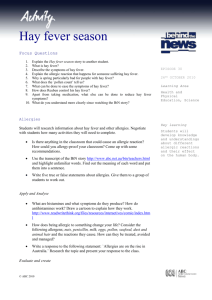Hay Fever - Davidson County Health Department
advertisement
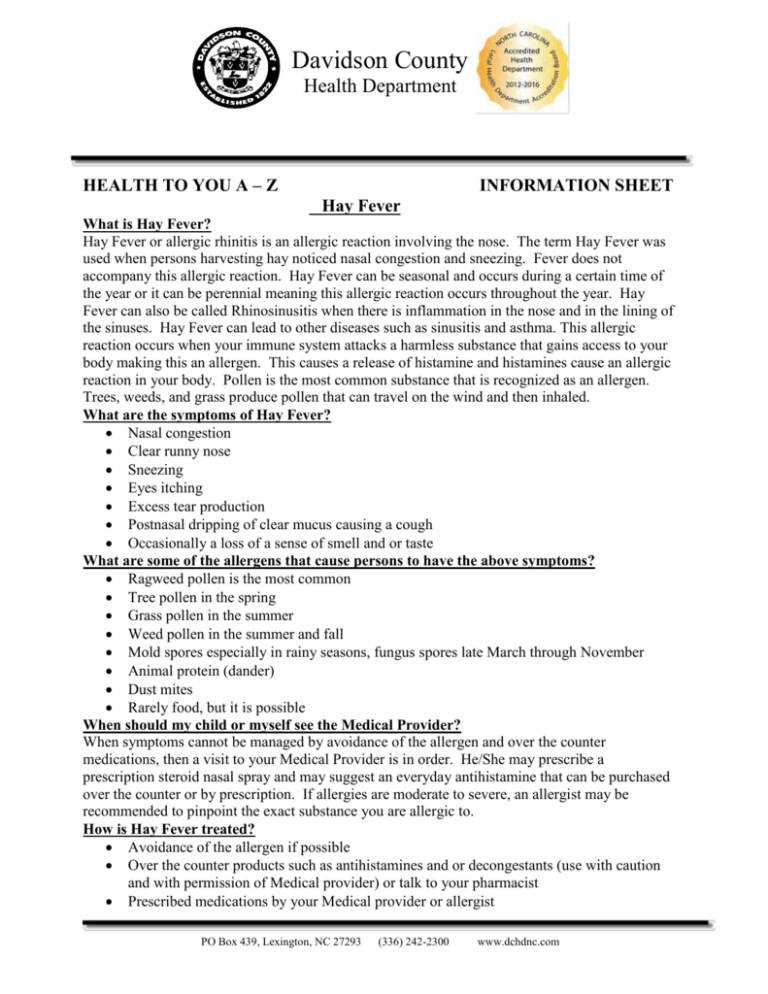
Davidson County Health Department HEALTH TO YOU A – Z INFORMATION SHEET Hay Fever What is Hay Fever? Hay Fever or allergic rhinitis is an allergic reaction involving the nose. The term Hay Fever was used when persons harvesting hay noticed nasal congestion and sneezing. Fever does not accompany this allergic reaction. Hay Fever can be seasonal and occurs during a certain time of the year or it can be perennial meaning this allergic reaction occurs throughout the year. Hay Fever can also be called Rhinosinusitis when there is inflammation in the nose and in the lining of the sinuses. Hay Fever can lead to other diseases such as sinusitis and asthma. This allergic reaction occurs when your immune system attacks a harmless substance that gains access to your body making this an allergen. This causes a release of histamine and histamines cause an allergic reaction in your body. Pollen is the most common substance that is recognized as an allergen. Trees, weeds, and grass produce pollen that can travel on the wind and then inhaled. What are the symptoms of Hay Fever? Nasal congestion Clear runny nose Sneezing Eyes itching Excess tear production Postnasal dripping of clear mucus causing a cough Occasionally a loss of a sense of smell and or taste What are some of the allergens that cause persons to have the above symptoms? Ragweed pollen is the most common Tree pollen in the spring Grass pollen in the summer Weed pollen in the summer and fall Mold spores especially in rainy seasons, fungus spores late March through November Animal protein (dander) Dust mites Rarely food, but it is possible When should my child or myself see the Medical Provider? When symptoms cannot be managed by avoidance of the allergen and over the counter medications, then a visit to your Medical Provider is in order. He/She may prescribe a prescription steroid nasal spray and may suggest an everyday antihistamine that can be purchased over the counter or by prescription. If allergies are moderate to severe, an allergist may be recommended to pinpoint the exact substance you are allergic to. How is Hay Fever treated? Avoidance of the allergen if possible Over the counter products such as antihistamines and or decongestants (use with caution and with permission of Medical provider) or talk to your pharmacist Prescribed medications by your Medical provider or allergist PO Box 439, Lexington, NC 27293 (336) 242-2300 www.dchdnc.com
